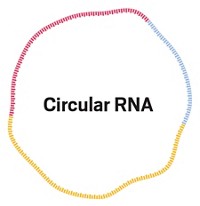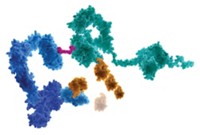Advertisement
Grab your lab coat. Let's get started
Welcome!
Welcome!
Create an account below to get 6 C&EN articles per month, receive newsletters and more - all free.
It seems this is your first time logging in online. Please enter the following information to continue.
As an ACS member you automatically get access to this site. All we need is few more details to create your reading experience.
Not you? Sign in with a different account.
Not you? Sign in with a different account.
ERROR 1
ERROR 1
ERROR 2
ERROR 2
ERROR 2
ERROR 2
ERROR 2
Password and Confirm password must match.
If you have an ACS member number, please enter it here so we can link this account to your membership. (optional)
ERROR 2
ACS values your privacy. By submitting your information, you are gaining access to C&EN and subscribing to our weekly newsletter. We use the information you provide to make your reading experience better, and we will never sell your data to third party members.
RNA
Merck announces $250 million collaboration with circular RNA company Orna Therapeutics
The pact will include development of vaccines and therapies for infectious diseases and oncology
by Gina Vitale
August 18, 2022
| A version of this story appeared in
Volume 100, Issue 29

Merck & Co. has entered a collaboration with circular RNA company Orna Therapeutics to develop several programs, including vaccines and therapeutics for infectious diseases and oncology. Merck will pay Orna $150 million up front and invest $100 million of equity in Orna’s series B financing round, which initially closed Aug. 16 with $221 million. Orna could receive up to $3.5 billion in milestone payments.
The company’s technology stems from research done at the Massachusetts Institute of Technology by cofounder Alex Wesselhoeft and molecular geneticist Daniel G. Anderson, who is on Orna’s board of directors. To make circular RNA, which the firm has dubbed oRNA, Orna brings together the two ends of a strand of linear messenger RNA (mRNA). Because the loose ends can be targeted by RNA-degrading enzymes, RNA circles are stabler in the body than linear strands, CEO Tom Barnes says. That greater stability helps the circles produce more therapeutic proteins in the body than linear mRNA does, he says. For delivery, the circles are packaged inside lipid nanoparticles engineered to target specific tissues.
The companies have not disclosed specific programs but have mentioned that vaccines are an area of interest. Currently, the only two mRNA vaccines approved by the US Food and Drug Administration are Pfizer and BioNTech’s and Moderna’s COVID-19 jabs, which do not use circular RNA. Merck has teamed up with Moderna on mRNA-related projects, including a $200 million collaboration on cancer vaccines signed in 2016. It has also worked with other RNA-focused biotech companies, such as Skyhawk Therapeutics.
Barnes says talks with Merck picked up after Orna presented promising preclinical data at the 2022 American Society of Gene and Cell Therapy annual meeting in May. “Their interest in us, I think, was because they kind of got the whole story—the advantage of circles, and the different ways in which [circular RNA] differentiates itself from mRNA,” he says.





Join the conversation
Contact the reporter
Submit a Letter to the Editor for publication
Engage with us on Twitter